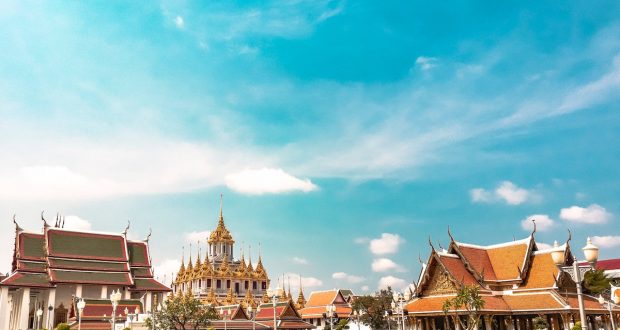On its face, it’s easy to see Thailand’s recent legalisation of cannabis as a boon for weed activists, enthusiasts and businesses alike. However, there’s little reason to believe the fittingly nicknamed “Land of Smiles” will become the cannabis mecca of Southeast Asia anytime soon. In this post, we go over the good, the bad and the specifics of Thailand’s legalisation of the cannabis trade.
What’s New About Thailand’s Cannabis Laws?
Thailand has become the first country in Asia to decriminalise marijuana for industrial, medicinal and even some recreational use, following a June 9 decision by the Thai Food and Drug Administration to officially remove cannabis in all its varieties from the Category 5 narcotics list. The move effectively makes the production, distribution, possession and consumption — along with the importation and export of cannabis — legal across the country. Citizens are now also allowed to cultivate cannabis at home for personal use once they’ve registered with the Thai government with the use of a phone app. Commercial growers, on the other hand, will have to undergo a more involved application process for licensure and permits.
The full legalisation of cannabis has been heralded as a massive victory for Asian activists and consumers alike, picking up on the momentum of previous victories; namely the legalisation of medical cannabis in 2018 and the decriminalisation of recreational use in some provinces in January this year. Time will tell if Public Health Minister Anutin Charnvirakul will follow through with his May 2018 promise that the Thai government would distribute 1 million cannabis seedlings to citizens following its legalisation.
It’s worth noting that while this all sounds good on paper, there are numerous restrictions and grey areas that will continue to affect the Thai cannabis space, at least until existing laws and regulations are properly fleshed out. Let’s go over the most significant examples of this below.
The Thai Economy Comes First
While the legalisation of cannabis for medicinal, industrial and (limited) recreational use is certainly a start, regional advocates claim the move smacks more of an idea for economic stimulus than an affirmation of individual liberty. In an interview with CNN, Health Minister Charnvirakul stated that he hoped the move would “help to boost the country’s ailing economy, particularly its agricultural sector, which has been hit hard by rising fertiliser costs amid disruptions in the global supply chain.”
In the same interview, Charnvirakul stressed that “we emphasised using cannabis extractions and raw materials for medical purposes and for health.” He went on to say that “there’s never once been a moment that we would think about advocating people to use cannabis in terms of recreation — or use it in a way that could irritate others.”
As far as approved recreational consumption goes, duly-licensed restaurants and cafes can now sell infused products that patrons are free to consume on the premises, provided they contain no more than a 0.2 percent concentration of tetrahydrocannabinol (THC). The current laws do not expressly mention other variations of THC, including delta-8 flower or isolate.
Cannabis Trade Good, Recreational Use Bad
Though marijuana and other varieties of cannabis are now effectively decriminalised in Thailand, their non-medical usage (e.g. recreational smoking, vaping or dabbing) is still actively frowned upon by the government — to the extent that local police have warned citizens and tourists alike against public consumption. Smoking cannabis outdoors, for instance, has been classified as a “public nuisance” for which violators can be fined for up to $700 or even arrested and jailed for a minimum of three months. These rules starkly contrast the country’s stance on cigarette smoking, for which there are no penalties for “non-productive” use.
Despite these public restrictions, the government seems hopeful that the legalisation of the cannabis trade within Thailand will energise its agriculture and tourism sectors, shifting revenues in those areas — as well as in related industries — into high gear. In an interview with the Washington Post, cannabis travel platform InnDica’s co-founder Monique Jackson-Fitzgerald stated that there would be “training and educational courses offered to local residents for transitioning to commercial cultivation and other business opportunities.” She also noted that “[individuals] investigating cannabis for its medicinal benefits or exploring business opportunities are being welcomed” by the Thai government.
Does This Bode Well for Cannabis Legalisation in Asia?
Advocates are currently at odds as to whether the Thai legalisation of cannabis is a step in the right direction or purely a calculated play at resuscitating its agricultural sector. It certainly can’t be considered a leading indicator on cannabis sentiment across Asia, given the Hong Kong government has moved in the opposite direction, announcing its intent to criminalise the sale, possession, importation and export of even non-psychoactive cannabis compounds like cannabidiol (i.e. CBD) in the months to come.
Time will tell if Thailand will be comparable to Amsterdam in the years to come. As of this writing, cannabis tourists — who have neither the time or resources to cultivate cannabis or start a business in the country — should think twice about visiting The Land of Smiles for purely recreational reasons.
 Trip Alertz For Jetsetters, By Jetsetters
Trip Alertz For Jetsetters, By Jetsetters



